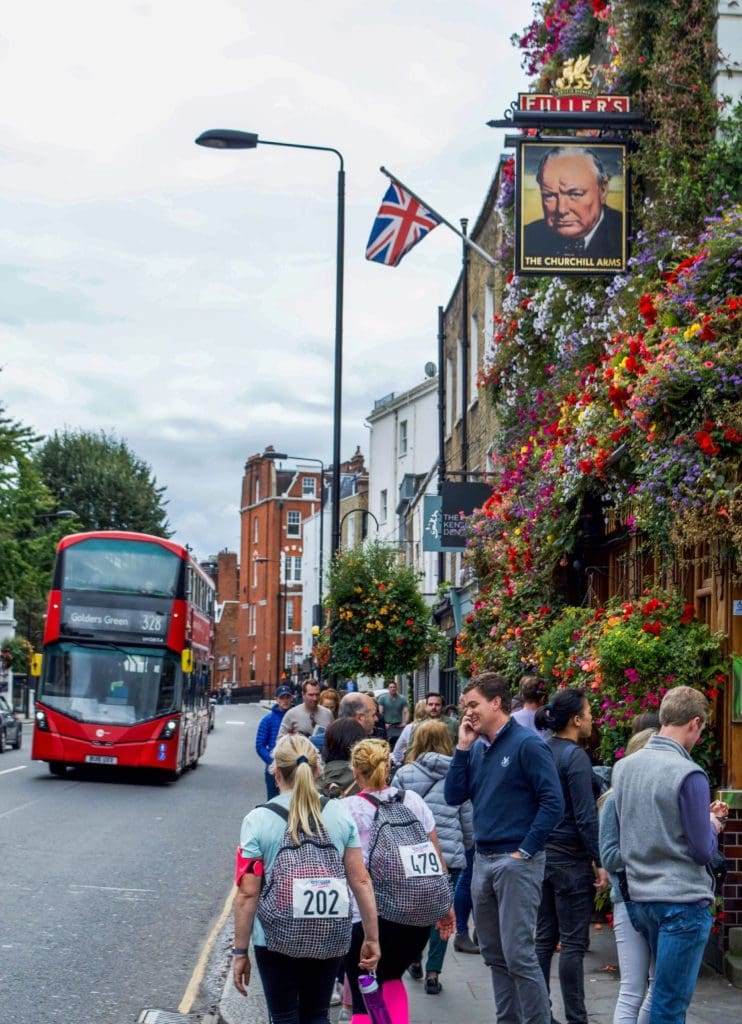Student (Tier 4) Dependent Visa Refusal Reasons
If you have had your Student Dependent Visa refused, contact our legal advisers today to find out what to do.
Call us on 0333 305 9375, or contact us online for more information about Student (Tier 4) Dependent Visa refusal reasons, the next step to take and how to reapply.
Read our 1001 reviews
Reasons for Student (Tier 4) Dependent Visa Refusal
The Student visa (previously Tier 4) holder can bring dependents, and sometimes the applications for dependents can be refused. Below are some of the reasons a Tier 4 Dependent Visa is often refused:
- Failure to provide sufficient evidence of a relationship
- Insufficient English language requirement
- Inadequate financial requirement
- Using the wrong visa application form
- Not disclosing previous criminal convictions
Failure to provide Sufficient Evidence of Relationship
The Home Office will thoroughly go over a Dependent Visa application and all documentation will be reviewed and assessed.
For a Dependent Visa application to be approved, you must prove your relationship. UK immigration laws require you to show evidence of your marriage (or civil partnership) certificate for your partner and a birth certificate for your child.
You will also need to demonstrate your relationship is genuine and this can be done by submitting evidence with your application such as details of how you met your partner, how you’ve made arrangements to live together and your ongoing connection. This can include providing WhatsApp messages, texts, and emails.
If you are uncertain about what documents you need to send with your application then reach out to an immigration specialist for advice to avoid potential delays or even a visa refusal.
Insufficient English Language Requirement
Partners will be faced with a UK Student (Tier 4) Dependent Visa refusal if there is no proof of sufficient English language knowledge. Children under 18 are exempt from fulfilling the language requirement.
As a dependent (partner) of a Student Visa holder, there are three ways to show your knowledge of the English language. They are:
- Exemption. You are exempt from English language requirements if:
- You have a physical (or mental) condition that prevents you from meeting the requirement – you will need to provide evidence that you are exempt.
- You come from any of the following countries: the USA, Dominica, Antigua and Barbuda, St. Lucia, Australia, the Bahamas, Barbados, Belize, Canada, Grenada, Guyana, Trinidad and Tobago, Jamaica, New Zealand, St. Kitts and Nevis, and St. Vincent and the Grenadines.
- You are over 65 years old.
- Academic qualification. You can meet the English language requirement if you have a degree or other academic qualification taught in English.
- Passing an English language test. If you are not exempt and have no academic qualifications, the only valid option is to pass an English test and meet the minimum requirements.
Inadequate Financial Requirement
As a Student Visa holder, your dependents’ visas may be refused if you underestimate the complexity of showing funds for their living expenses.
You should note that, in addition to the money you need to support yourself, each of them will have a certain amount of money available to them.
The financial requirement for Student Dependent Visa applications will require your dependents to have £845 a month (for up to 9 months) if you are studying in London or £680 a month (for up to 9 months) if you are outside London.
Applying for a Dependent Visa for your partner and children will only require you to prove they have the finances to support themselves. These funds should be in your account or your dependents’ account for at least 28 consecutive days.

Using the Wrong Visa Application Form
UK immigration law changes periodically, so application forms will also change. Therefore, you need to be updated with these laws to use the appropriate visa form. For a dependent application, the form to use is the VAF4A form.
As visa applications can be complex and may take several months to prepare, it is advisable to thoroughly check the application form before submitting it.
Furthermore, dependents will have their application refused if they apply for a Skilled Worker (Tier 2) Visa while the main applicant is still on a Student (Tier 4) Visa.
As a dependent of a Student Visa holder, before you can apply for a Skilled Worker Visa, the main applicant must have converted their Tier 4 Visa to a Skilled Worker Visa.
There are specific requirements and supporting documentation for each visa type. Applying for the wrong visa will not meet eligibility requirements.
With the help of an immigration lawyer, your dependent application form will be seamless and completed correctly. IAS can help you with your Dependent Visa application form. Call us today on 0333 305 9375 or contact us online.
Not Disclosing Convictions
Aside from meeting the UK-specific requirements for a Student Dependent Visa, dependents must also meet the general requirements, such as the “general grounds” for refusal.
The General Grounds has the criminality ground sub-category, which focuses on whether a person has had any criminal offence(s), including traffic offences, non-custodial sentences, or out-of-court disposals, and their influence on a visa application.
If, for instance, a dependent has any criminal record and the criminality history was undisclosed during the application, the application is likely to be considered deception or false representation, resulting in a refusal.
Although a criminal history might impact a visa application, it is mandatory to disclose it.

Mandatory grounds for refusal
Applications based on mandatory grounds are likely to be refused automatically. Applicants must be refused entry clearance or permission if:
- They have been convicted of a criminal offence in the UK or overseas for which they have received a custodial sentence of 12 months or more.
- They have committed a criminal offence or offences that caused severe harm.
- They are persistent offenders who disregard the law.
Discretionary grounds for refusal
Applicants may be also be refused entry clearance or permission to enter or stay if:
- They have been convicted of a criminal offence in the UK or overseas for which they have received a non-custodial sentence or out-of-court disposition recorded on their criminal record.
- They have been convicted of a criminal offence in the UK or overseas for which they have received a custodial sentence of fewer than 12 months.
What Can You Do After a Tier 4 Dependent Visa Refusal?
Overview
When a caseworker has reviewed your visa application and a decision of refusal is made, you will receive a refusal notice from the Home Office.
After receiving your refusal notice, you may wish to challenge the refusal. It is possible to overturn a visa refusal application and more than half of immigration decisions do get overturned on appeal.
There are a number of options after receiving your refusal notice:
- Appeal if there is a right to do so.
- File an administrative review (AR).
- Opt for Judicial Review (JR).
- Reapply.
If you have no right to appeal and there are no errors in the decision, a JR is an option to consider. However, you should note that a JR can only be filed if you have a right to an AR. You should file it after applying for an AR. The time limit for judicial review is 3 months.
Appealing a Tier 4 Dependent Visa Refusal
An appeal against a Dependent (Spouse or Child) Visa refusal is only possible on Human Rights grounds.
Appeals are extremely complex and time-consuming. Hence, preparing a comprehensive appeal case is very crucial. The preparation will include:
- Assessment of refusal reasons
- Full assessment of the documents and evidence submitted
- Drafting witness statements
- Grounds for an appeal to the First-tier Tribunal
- Completing the appeal form and compiling an appeal bundle
When the appeal case preparation is complete, it will be lodged with the Immigration Tribunal and served at the Home Office. The immigration appeal time limit for in-country appeals is 10 days.
Administrative Review (AR) of Your Tier 4 Dependent Visa Refusal
The first option available when an application under the Point-Based System (PBS) gets refused by the Home Office is an Administrative Review (AR).
It is usually possible to obtain an AR after a Student Dependent Visa application refusal with no right of appeal. You should note that the AR filing review is within 14 or 28 days of the visa refusal letter.
Conducting an AR is carried out by a separate team independent of the original decision maker dealing with visa reviews. AR filing requires you to:
- Send your completed form in the way the refusal letter states.
- Mention the reasons for refusal in your decision letter, stating why you think there was a mistake.
Usually, AR applications do not include additional documents but you will need to pay £80 per application. In some situations, you may be exempt from paying the fee if:
- The fee is waived.
- You can prove you are unable to pay the fee (in exceptional circumstances only).
Indeed, the Administrative Review is a complex process, and the key to ensuring a successful outcome is to precisely spot the error made by the caseworker when deciding on your application.
Involving a legal practitioner in your application will make it easier. They will help you analyse the reasons for the visa refusal and put together a thorough cover letter indicating the points to be addressed.
If you are considering the help of an immigration lawyer, call IAS on 0333 305 9375 for immediate assistance or contact us online.
Reapplying following a Tier 4 Dependent Visa Refusal
If you can fully address the grounds for your visa refusal, you may simply reapply.
Although there is no general time limit on how soon you can submit a new application, you must be aware of limitations during the time limit when appeals are being made and administrative review is still underway.

How IAS Can Help
Getting a Student (Tier 4) Dependent visa approval on the first attempt is everyone’s priority; a UK visa refusal will remain permanently in the Home Office record and can obstruct all subsequent visa applications.
IAS can help you get your Student Dependent Visa on the first try. We can provide professional advice to help you meet visa requirements and organise your documents correctly to avoid refusal.
If you have had your Student Dependent visa refused, we can guide you on what to do. We will help you choose the most effective option to rule against your visa refusal application.
We are expert immigration lawyers working within the field of UK and international immigration. We can help you, no matter the complexity of your case or what your circumstances are.
Reach out to one of our immigration lawyers today. Call us on 0333 305 9375, or contact us online to find out how we can help you.
Table of Contents
Table of Contents will appear here.Table of Contents
Table of Contents will appear here.Legal Disclaimer
The information provided is for general informational purposes only and does not constitute legal advice. While we make every effort to ensure accuracy, the law may change, and the information may not reflect the most current legal developments. No warranty is given regarding the accuracy or completeness of the information, and we do not accept liability in such cases. We recommend consulting with a qualified lawyer at Immigration Advice Service before making any decisions based on the content provided.
Services we Provide
Frequently Asked Questions
As a Student (Tier 4) visa holder, you can bring dependents only if you are:
- On a full-time course of study that is 9 months or more and sponsored by the University at or above RQF Level 7 (Master’s Degree); or
- A government-sponsored student pursuing a full-time course lasting 6 months or more.
Your dependents are not allowed to come to the UK if you are a part-time student, a visitor, or a short-term study student.
Your partner and children are the only recognised family members that can be your dependent. Your partner could be one of the following:
- Your wife
- Your husband
- Your unmarried partner or same-sex partner
- Your civil partner
You and your partner must be 18 years old or above at the time of your visa application. You must also intend to live together during your stay in the country. In addition, your partner should not intend to stay in the country longer than the period you have been given.
Your children should be less than 18 years old at the time of application. If they are 18 or older, they can only qualify if they are already in the UK as your dependent child and are applying to extend their stay.
Yes. However, you must apply before your current authorisation expires. For you to apply for a Tier 4 dependent visa in the UK, you must not be in the country as:
- A seasonal worker
- A parent of a child student
- A visitor
- A domestic worker in a private household
- A short-term student
In addition, you also must not be on immigration bail or be in the UK with permission outside the immigration rules before applying for the visa.
Yes. However, you must apply before your current authorisation expires. For you to apply for a Tier 4 dependent visa in the UK, you must not be in the country as:
- A seasonal worker
- A parent of a child student
- A visitor
- A domestic worker in a private household
- A short-term student
In addition, you also must not be on immigration bail or be in the UK with permission outside the immigration rules before applying for the visa.
Yes. As a student in the UK, when you convert your Tier 4 visa to a Skilled Worker visa, your partner and children can also apply to switch their visas, but they will have to apply separately.
You have 30 days to leave the UK voluntarily if your visa expires. If you don’t, you will face a re-entry ban.
However, circumstances like awaiting an application decision while your visa is expired will permit you to remain in the UK. This can only happen if the application is valid.
















